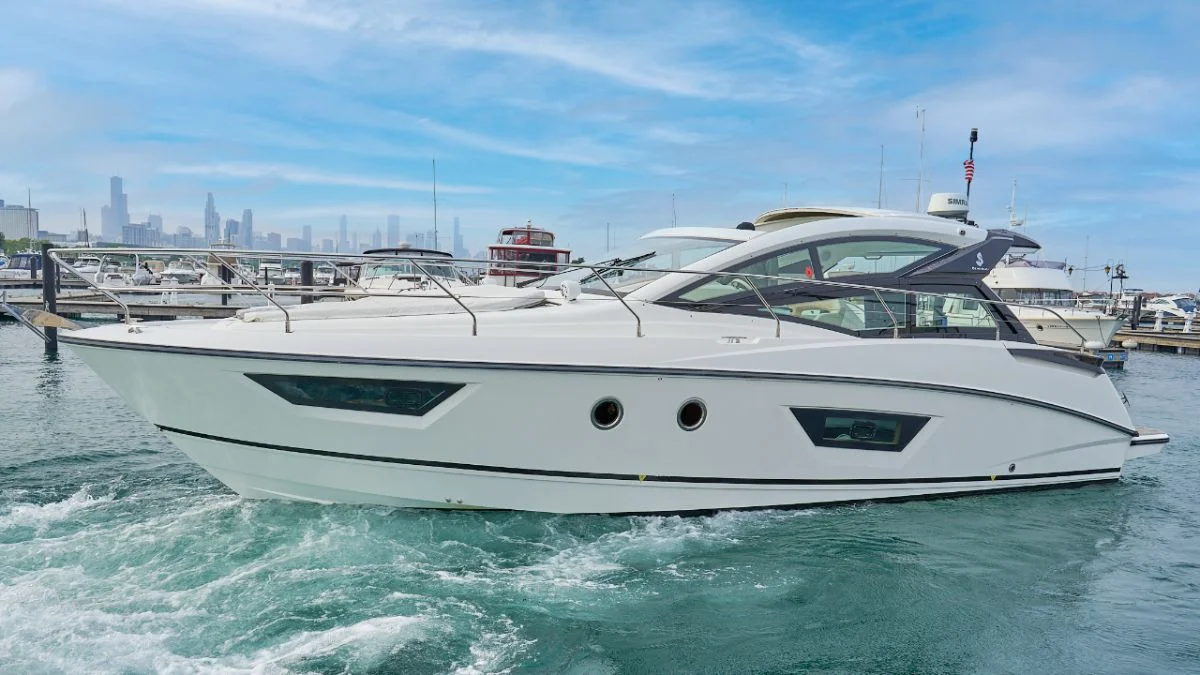Travel
What You Should Know About Licensing Requirements for Boat Rentals

Renting a boat can be a fantastic way to explore scenic waterways, enjoy water sports, or host a memorable outing with friends and family. However, before you take the helm, it’s essential to understand the licensing requirements for boat rentals. These requirements can vary based on location, the type of vessel, and your level of experience.
Whether you’re planning a getaway with a chicago boat rentals company or elsewhere, knowing the rules ensures a safe and enjoyable boating experience. This guide will explain what you need to know about licensing and compliance for your next adventure.
Why Licensing Requirements Are Important
Boating licenses are designed to promote safety on the water. Operating a boat without proper knowledge can lead to accidents, fines, or legal consequences. Licensing requirements ensure that individuals operating boats understand navigation rules, safety protocols, and environmental stewardship.
For rental companies, verifying that their customers meet licensing requirements minimizes liability and ensures compliance with local regulations. For you, it’s about protecting yourself, others, and your surroundings while enjoying your time on the water.
Licensing Requirements: What to Expect
The licensing requirements for boat rentals depend on several factors, including the location, type of vessel, and your prior boating experience.
1. Location-Specific Rules
Different states and countries have unique boating laws. In the U.S., many states require boaters to complete a safety course or obtain a Boater Education Card, especially for motorized vessels.
For example, if you’re renting through a Chicago boat rental company, you must follow Illinois state regulations, which mandate specific safety requirements for motorized boats and operator age restrictions.
2. Type of Boat
- Motorized Boats: Most jurisdictions require licensing or certification for motorized boats, particularly those with larger engines.
- Non-Motorized Boats: Canoes, kayaks, and paddleboards typically don’t require a license, though some locations might have age restrictions or basic safety guidelines.
- Specialty Vessels: Renting yachts, houseboats, or sailboats may require advanced training or additional certification.
3. Age Requirements
Many locations impose minimum age requirements for operating certain types of boats. For example, younger operators may need to complete a safety course or be supervised by a licensed adult.
How to Obtain a Boating License
If you don’t already have a boating license, obtaining one is a straightforward process:
1. Complete a Boating Safety Course
Enroll in a state-approved boating safety course. These online or in-person courses teach essential topics such as navigation rules, safety procedures, and environmental responsibility.
2. Pass the Exam
After completing the course, you must pass an exam to demonstrate your understanding of boating safety and regulations.
3. Receive Your Certification
Once you pass the exam, you’ll receive your Boater Education Card or license. Keep this document on hand whenever operating a boat, as you may be required to show it during your rental or to authorities on the water.
What If You Don’t Have a License?
If you don’t have a boating license, you still have options:
- Hire a Licensed Captain: Many rental companies offer the option to hire a captain to operate the boat for you. This is ideal for larger vessels or those unfamiliar with boating rules.
- Choose Non-Motorized Options: Paddleboards, kayaks, and other non-motorized vessels are often exempt from licensing requirements, making them an excellent choice for beginners.
- Temporary Licenses: Some regions allow for temporary permits, which you can obtain after completing a brief safety tutorial provided by the rental company.
Tips for Compliance and Safe Boating
To ensure you meet all licensing requirements and enjoy a safe boating experience, consider these tips:
- Research Local Regulations: Check the boating laws for your rental location in advance. Rental providers like a Chicago boat rental company can often guide you through the requirements.
- Verify Rental Company Policies: Confirm whether the company provides insurance, requires proof of licensing, or offers temporary permits.
- Document the Condition of the Boat: Inspect the boat for any existing damage before setting off and taking photos. This can prevent disputes over responsibility for damages.
- Stay Informed: Even if you’re licensed, refresh your knowledge of safety rules and navigation guidelines before heading out.
Do International Boating Laws Apply?
If you plan to rent a boat outside the U.S., many countries require an International Certificate of Competence (ICC) or equivalent documentation. Research the specific rules for your destination to avoid complications.
A Final Thought on Licensing for Boat Rentals
Understanding licensing requirements is critical to planning your boating adventure. Whether renting a small paddle board or a luxury yacht, ensuring compliance with local laws guarantees a safe and stress-free experience.
Consider working with a trusted Chicago boat rental company for personalized guidance and reliable rentals. They can provide insights on licensing, vessel selection, and safety protocols, allowing you to focus on creating unforgettable memories on the water.
-

 BIOGRAPHY9 months ago
BIOGRAPHY9 months agoBehind the Scenes with Sandra Orlow: An Exclusive Interview
-

 HOME1 year ago
HOME1 year agoDiscovering Insights: A Deep Dive into the //vital-mag.net blog
-

 HOME1 year ago
HOME1 year agoSifangds in Action: Real-Life Applications and Success Stories
-

 BIOGRAPHY1 year ago
BIOGRAPHY1 year agoThe Woman Behind the Comedian: Meet Andrew Santino Wife




























